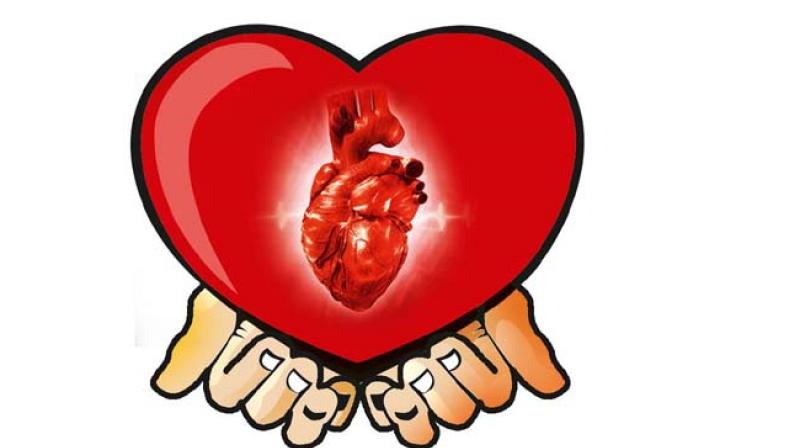When the heart matters
About 30% of urban and 20% rural population has high cholesterol levels.

Kochi: The high mortality and disability rate from heart attack and stroke is a clear pointer that in India the heart ailments have assumed the form of a silent epidemic.
“The country reportedly has 30 million heart patients accounting for 60% of cardiovascular diseases worldwide,” says Dr K.P. Balakrishnan, president, Interventional Cardiology Council of Kerala.
“Hypertension has enslaved nearly 40% of the Kerala population. About 30% of urban and 20% rural population have high cholesterol levels. Roughly 20% of the state population has cardiovascular disease risks. Coronary interventions done on patients report an average 30% rise every year.”
Amid concerns that Kerala stands ahead in cardiovascular disease mortality and disability, interventional cardiologists across the state held their annual scientific conference here to devise strategies for disease surveillance, prevention and management.
The conference was organised by Interventional Cardiology Council of Kerala (ICCK), the body of cardiologists who do catheter-based therapy for all complex diseases of the heart. “The incidence of the disease can be gradually brought down with studies on genetic predispositions, spreading awareness on risk factors like unhealthy lifestyle and food habits and sustained monitoring for prevention," said Dr Balakrishnan.
"Equally significant is the awareness to identify symptoms of heart attack and emergency procedures and ensuring to people in all geographical area timely access to interventional treatments.”
“ICCK has developed specific action plans in all these crucial areas and is in the process of executing them. The movement needs collective action by the whole state health sector and health insurance sector with public participation,” he added.
“Heart attack is always a run against time to reach a hospital equipped with advanced catheter labs to perform angioplasty (PCI) for earliest restoration of blood flow to heart muscles (reperfusion),” said Dr Jabir A., the senior cardiologist at Lisie Hospital, Kochi.
“Kerala has the maximum number of cardiac catheterisation labs offering 24x7 services. There are 113 functional cath labs in Kerala for its 3.4 crore people, which far exceeds the national average. According to the study conducted by Cardiological Society of India, Kerala chapter, the mortality in cases of primary angioplasty in Kerala is minute. The efficacy of treatment is at par with the European and American standards.”
The recent studies also suggest that in Kerala, nearly 70% of the population can access nearest reperfusion-capable hospital within 30 minutes and another 22 per cent within 30 minutes to one hour. However, an eight per cent population in remote areas is outside timely access zones.
“Regionalised treatment for timely reperfusion is the only practical approach. So, more remote hospitals need to be equipped with catheterisation labs. This is an area where we require allocation of more health resources,” Dr Jabir said.
“Patient survival rate from a heart attack would tremendously improve if we make the best use of information technology for early access to reperfusion-capable hospitals.”
A cardiac emergency mobile app is also being developed by Cardiological Society of India, Kerala chapter, to help the patients. It would connect the patient location to the nearest speciality hospitals and ambulance system.
“Basic knowledge of bystanders to do the cardiopulmonary resuscitation (CPR) for life support while awaiting definitive treatment is very crucial. Training on first aid including life-saving CPR can be imparted through educational institutions, residents associations and voluntary organisations,” he said.
Poor penetration of health insurance is another key area that needs urgent attention to ensure equitable healthcare to all. The state health and insurance sector need to evolve affordable insurance schemes covering primary PCI.
Dr Jabir added that the conference specifically dealt with the issue of giving the entire population of the state timely and equitable access to primary angioplasty, which is the most effective treatment for heart attack.
The annual meet held eighteen scientific sessions in two days covering topics including primary angioplasty, pediatric intervention, bifurcations, peripheral interventions, transcatheter aortic valve replacement procedure (Tavr), antiplatelets, coronary imaging and physiology, newer therapeutic options, left main interventions, calcified lesions, rotablation, complex PCI, aortic intervention , chronic total occlusion, graft interventions and structural heart disease.
The meet was attended by more than 300 interventional cardiologists, eminent speakers, faculty, scientists and researchers from across the state.

